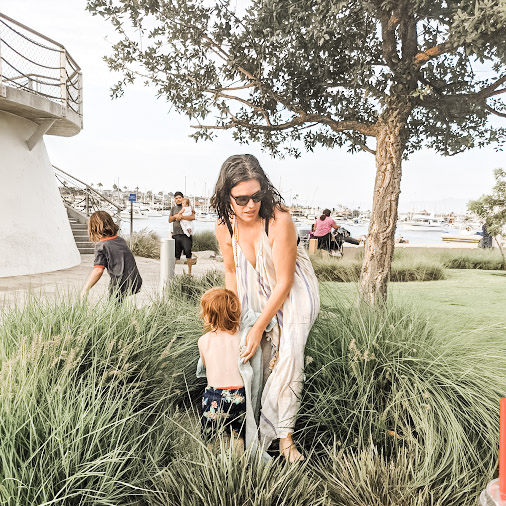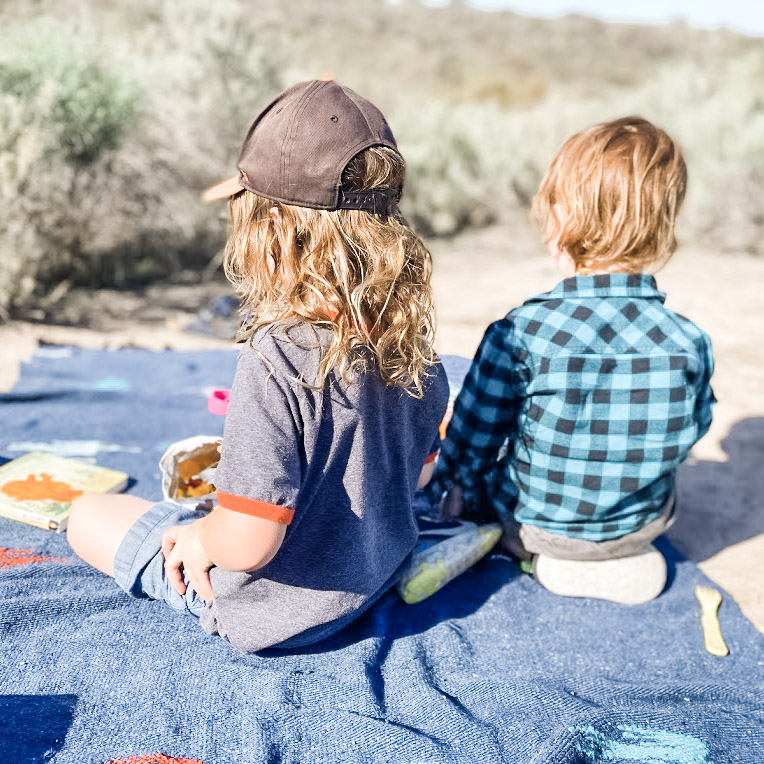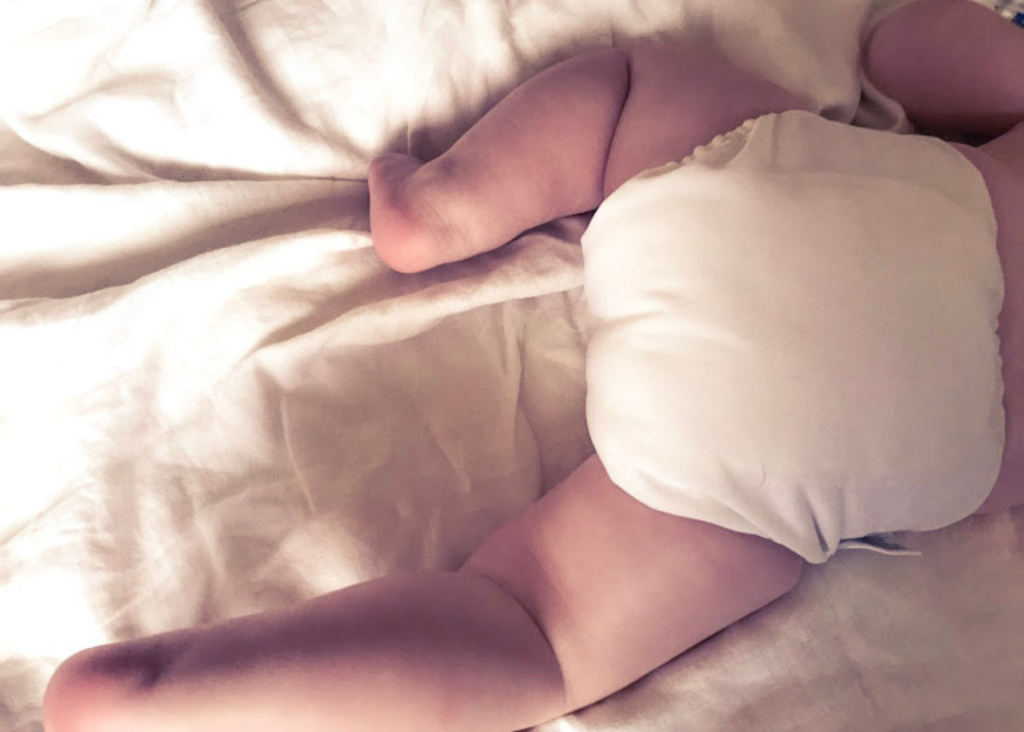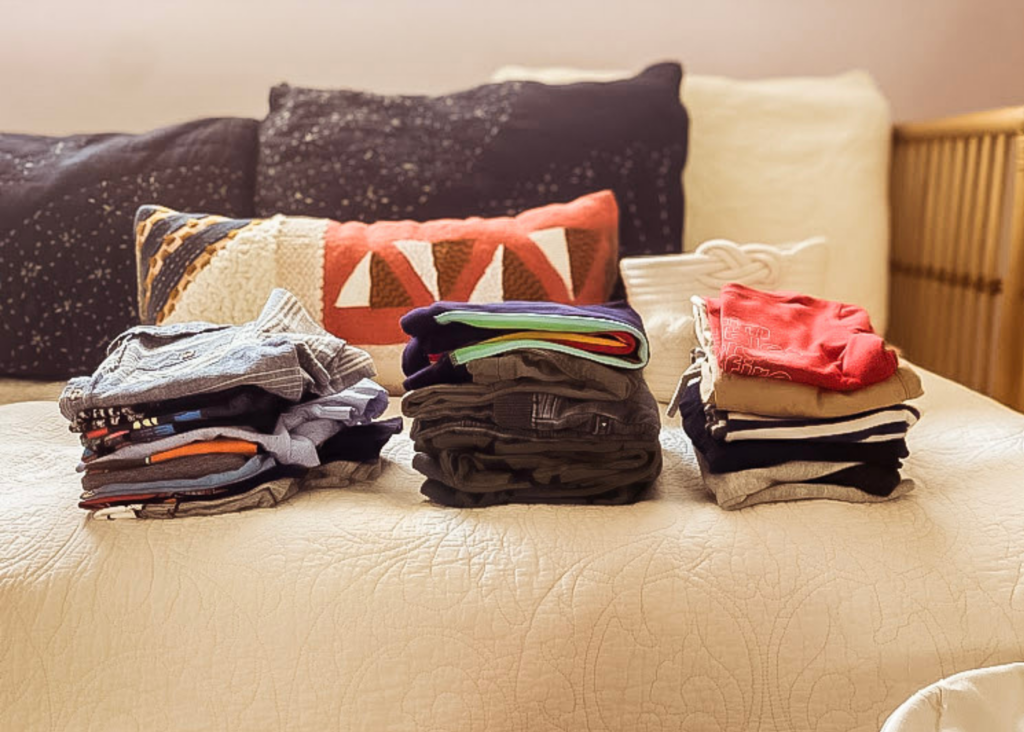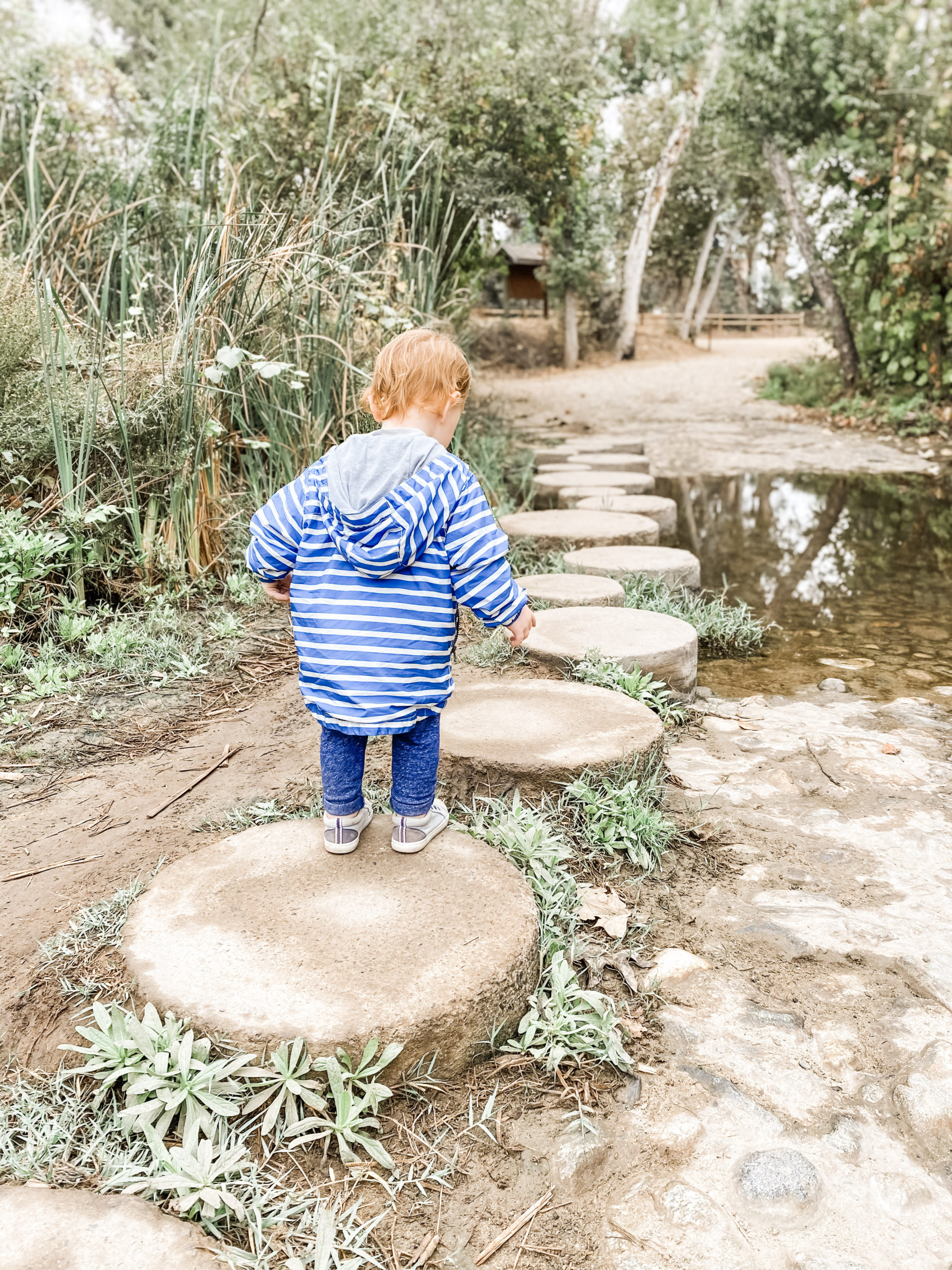7 Ways To Raise Kids Who Care About the Earth
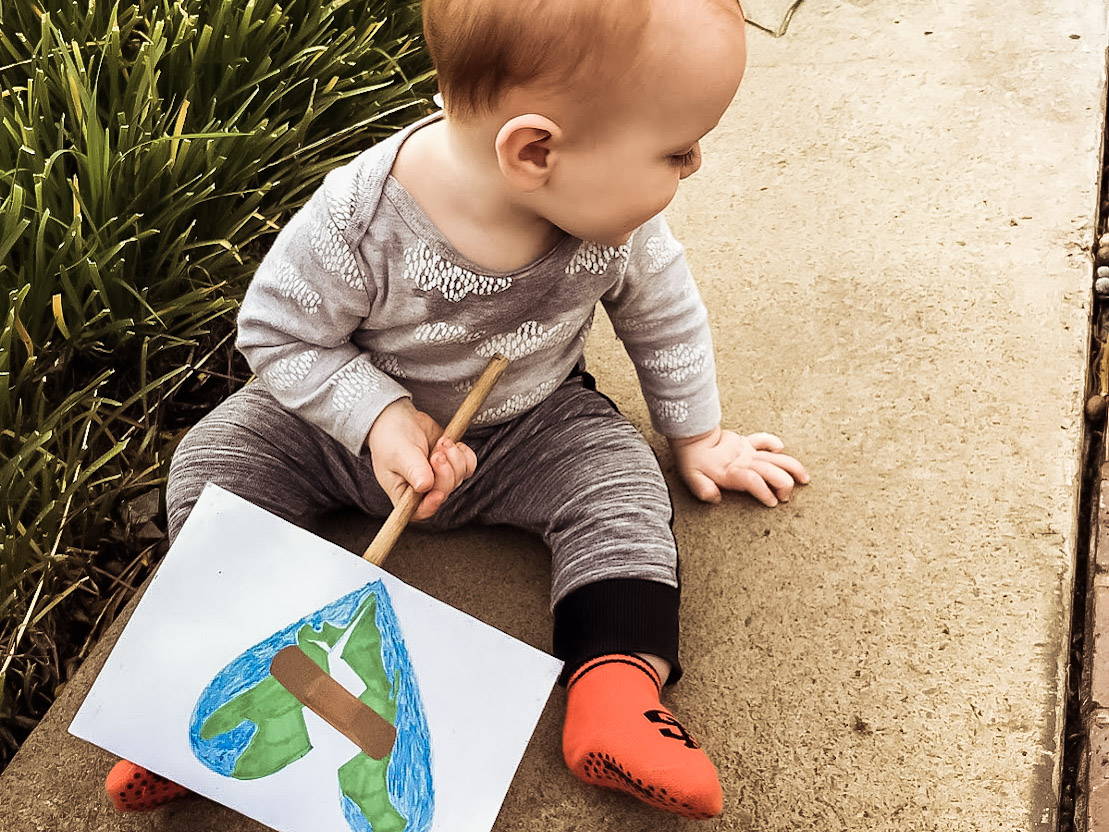
Ok, first things first. In order to be fully transparent, I should note that my kids aren’t grown up yet (you can probably tell from the pictures on this blog). So I have NO idea if I am doing this right or not! But, I work every day to raise kids who care about the environment. And, I do know that my preschooler talks about how lovely the natural world is and when I say we don’t want any litter to go into the ocean, he sometimes responds, “because we don’t want the fish to eat it, right mama?”
With that disclosure out of the way (😉)…
Here Are 7 Ways to Raise Kids Who Care About the Environment
1. Get Them Outside
As much as possible. The best way to teach kids to love and care for the environment is to expose them to it. Almost every environmentalist I know is also a hiker, camper, surfer, or some kind of outdoorsy person. I think getting them outside is the best way to raise kids who care about the environment because it is hard to appreciate and care for something that you have no attachment to.
If you have a few minutes, read “The Last Kid in the Woods” for some inspiration and a bit on why being in nature is important for their health as well as their values. Help them to fall in love with the natural world, for their well being as well as that of the earth.
Get them to appreciate all the natural beauty around you and they will learn to care for it as well.
And, of course, you will all benefit physically and psychologically as well. We try to get outside no matter what around here!
2. Discuss What You Buy and Why (and What You Don’t Buy)
While this is likely over their heads now, when my little one asks for something that I don’t want to buy for environmental or ethical reasons, I tell him, in simplified terms.
If he picks something with an alternative, I say, something like “well, Bug, I don’t want to buy that toothbrush. But how about this one. That one is plastic and we are trying to minimize plastic at home. This one is bamboo. And that is better for the earth.”
When there isn’t an alternative, I usually say something like, “mama doesn’t like to buy plastic water bottles because they go in the trash and it is wasteful. We have cups and really cool water bottles at home” or “I don’t think we really need that right now, maybe this is something we can buy for your birthday, what do you think?”
3. Be Stewards Together
Every time we go to the beach, we pick up a few pieces of trash. And we always talk about why we are doing it. I say things like, the beach is so beautiful and we want to help keep it that way or “we don’t want this to go into the ocean because the fish might think it’s food! Oh no!” I make the fish food a bit of a joke and we laugh, but the point is made. Then we pick up some garbage and toss it in the nearest trash can.
He has seems to understand why we pick up the litter now. When I ask him to pick up a piece of trash at a park or on a trail, he will usually say something like, “that is trash and we don’t want the animals to eat it, right mama?” I am a proud environmentalist mama.
4. Be The Example
Having kids has served as a bit of an accountability check. I know what I need to do, but sometimes I am unable (unwilling maybe? It’s inconvenient…) to be the environmentalist that I want to be. I will admit to buying a plastic bottle here and there or forgetting my grocery bags.
With my kids watching, I know that I am an example to them. Without even knowing it, they are holding me accountable. I want to be the best example that I can be, so I am. Well, most of the time at least.
So, I show them what it means for me to be an environmentalist as often as I can. We go to demonstrations together, we grocery shop together, and we pick up litter together.
5. Talk About it. A lot
True story: We have a running joke in our household about how to punk an environmentalist mama. My preschooler used to think it was hilarious to put the recyclables in the trash. I say, “no baby, the recycling.” He says “No. This trash.” It went on and on as only a discussion with a toddler can, and in the end, I end up pulling paper out of the trash can.
Now, he knows what the recycling symbol means and that a few of his toys and utensils were recycled. He looks for the symbol on trash cans and tells me about it. I am not sure he totally understands what it means to be recycled, but we talk about making new things out of old things and how cool it is.
Talking about it regularly helps him appreciate (and eventually understand) the importance of some of the things we do.
I talk about litter every time we are at a park or beach. We talk about taking care of the plants and trees around us. We discuss staying on the trail (this is really challenging) and being gentle with the plants (also tough. He wants to hit everything with a stick or stomp on it). We talk about not wasting things and how important it is to take care of the world around us.
I just keep talking about these things, in the same way we talk about manners and how to ask politely for something. I treat environmentalism like every other value I want to pass on. Every time we do something that gives me an opportunity to show my environmentalism, we talk about it later. Much of the time it is over their heads. I say things like:
“We vote because it is important to elect people that share our values, like taking care of the earth.”
“We protest because we want people to know who important taking care of the environment is to us.”
“We buy these healthy foods because it is good for us and the earth.”
He loves talking about the earth now as well and every once in a while throws in a “the earth is so beautiful, we really need to take care of it, right mama?”
6. Read To Them
There are some really great environmentally friendly kids books. I love the Lorax and Santa Claus is Green. Here are a few more recommendations from Read Brightly.
I try to get any “new” books from the library. We talk about borrowing them, and then returning them so other kids can have a chance to read them. This also gives me an opportunity to talk a little about “stuff” and why we don’t need all of it (even when it feels like we do!)
7. Normalize It
Your lifestyle is your lifestyle. And, until your kids get a little older, they won’t know any different. Instill the values now, and they should last a lifetime. They won’t know that it is unusual that their mom never uses plastic baggies and only uses upcycled gift wrap. They won’t think it’s odd that they use cloth diapers and napkins or that we plug our car in instead of going to the gas station (my kids love this, we do it together!).
Of course, they are likely going to go through phases where they want things that you feel uncomfortable giving them or don’t understand why they can’t have it. There will likely be times when they rebel or protest your decisions. But as long as it is presented as “how we do things,” these values will stick. Or at least I hope so!
Have you done anything to raise kids who care for the environment? I would love to know what it is!

